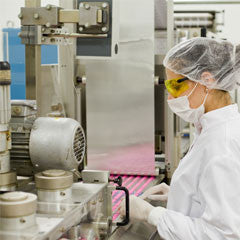
Program 10: Diploma in General Biotechnology
Get a gist of Industrial Biotechnology, Recombinant DNA technology, Instrumentation, Enzyme Biotechnology- all of which forms the basis of your working capabilities in a biotech/pharma laboratory.
Course Content:
The Diploma Program consists of 4 Modules as detailed below:
MODULE 1: INDUSTRIAL BIOTECHNOLOGY
- Sterilization techniques
- Isolation of Industrially important Microorganisms from natural sources
- Pure culture techniques
- Streak plate technique
- Spread plate technique
- Genus level identification of unknown microorganisms
- Culture characteristic studies
- Staining techniques
- Biochemical techniques
- Bacteriological examination of water by Multiple Tube Fermentation test (MPN test)
- Detection of Coli forms using membrane filtration method
- Determination Bacterial Growth Curve by Spectrophotometric method
- Microbiological analysis of food products
- Screening of microorganisms for production of enzymes
- Starch hydrolysis test
- Casein hydrolysis test
- Catalase test
- Urea hydrolysis test
- Gelatin hydrolysis test
- Production of enzymes
- Enzyme assay
- Screening of microorganisms for production of Antibiotics
- Isolation of antibiotic producing bacteria
- Production of antibiotics
- Antibiotic sensitivity test
- Production and estimation of citric acid from fungi
- Detection of arsenic by microbiological methods
- Detection of nicotinic acid by bioassay
- Production of wine from grapes
- Production of sauerkraut by microorganisms
- Production of amino acids and detection by chromatographic method
- Demonstration of Koch’s postulates for fungal pathogens
- Screening for antagonism
- Production, purification and characterization of Enzymes/Amino acids /Organic acid/Antibiotics
MODULE 2: RECOMBINANT DNA TECHNOLOGY
Part I:
Preparation of plant DNA by SDS method and c-TAB method
- Preparation of RNA
- Preparation of animal DNA
- Preparation of Plasmid DNA
- Preparation of genomic DNA from prokaryotes
- Quantitative and Qualitative analysis of DNA
- Characterization of bacterial strains
- Characterization of nutritional mutants
- Characterization of antibiotic resistance
- Characterization of UV sensitive mutants
Part II:
- Tm of DNA-Melting point of DNA
- Restriction mapping
- Preparation of competent coli cells (ultra competent)
- Expression of cloned genes in coli
- Gene regulation
- PAGE and AGE for DNA
- Protein structure analysis
- Biodiversity and Biomass analysis
- Recovery of DNA from Agarose.
- Detection of DNA
- Silver staining
Part III:
- Southern Blotting
- Gene expression and identification by western blotting
- Primer design and vector construction
- PCR Techniques
- DNA Finger printing (by RAPD)
- Protein finger printing/protein profiling
MODULE 3: INSTRUMENTATION
- HPLC
- GC
- AAS
- PCR
MODULE 4: ENZYME BIOTECHNOLOGY
- Sterilization techniques
- Isolation of enzyme producing microorganisms from natural sources
- Pure culture preparation and preservation techniques
- Genus level identification of unknown microorganisms
- Staining techniques
- Biochemical studies
- Screening for production of enzymes
-
Fermentation technique
- Solid state fermentation technique
- Submerged fermentation techniques
- Down stream processes
- Crude extraction of enzyme
- Purification of crude enzyme
- Precipitation of enzymes (salt/solvent)
- Dialysis
- Ion exchange chromatography
- Gel filtration chromatography
- Characterization of purified enzyme
- Enzyme assay
- Total protein estimation
- Bradford method
- Biuret method
- Lowry’s method
- 280 methods
- Concept of specific activity
- Enzyme kinetics
- Effect of pH
- Effect of Temperature
- Effect of Substrate conc.
- Effect of Activator
- Effect of Inhibitor
- Time course of the reaction
- The concept of Km and Vamp
- Demonstration of substrate catalyst complex
- SDS PAGE
- Staining of proteins
- CBB staining
- Silver staining
- Drying gels
- Calibration of proteins and molecular weight determination
- Native PAGE
- Zymography
- Immobilization of Enzymes and formulation
Who should join?
If you are a biotechnology enthusiast, an MSc/MTech/ME in Life Sciences, who are looking to strengthen concepts and build on hands-on skills, which would help you grab the right job, this is the right place to enrol.
Course Details:
The module consists of 3 month classroom training with our expert faculty followed by 1 months practical exposure with our service provider. Also avail our e-learner facility.
Total Duration: 4 months
The classes will be held in Biotecnika Bangalore branch/ Online.
Lab Partner: Azyme labs



